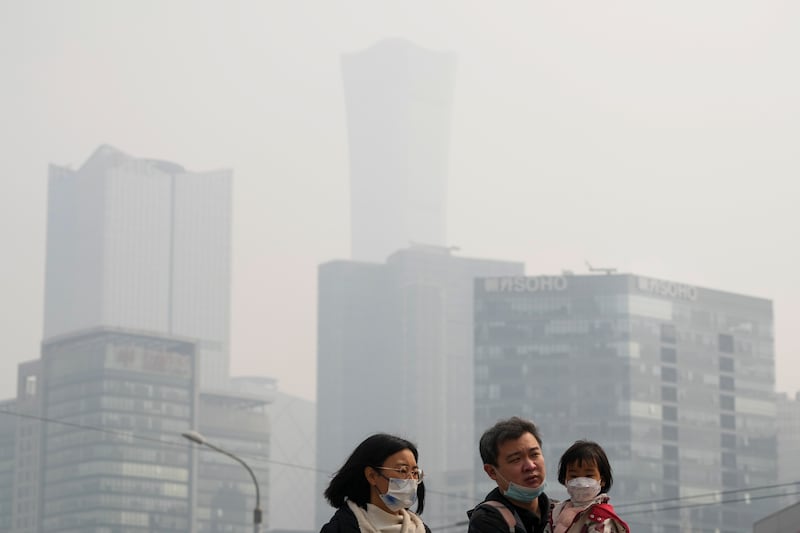Everyone knows that China is a global economic predator, but not everyone in Utah knows it has a dangerous and destructive strategy against American workers through toxic production processes.
For decades, Utah’s workers have been bound by regulatory challenges while China freely floods our markets with cheap products produced by a labor force that toils in questionable working conditions that may indeed be dangerous.
Today, championed by our “America-first” leadership in Washington and Salt Lake City, we have a tremendous opportunity to level the playing field.
When Utah’s legislature passed HR5 last year, a resolution urging Congress to hold foreign polluters accountable through our updated trade policies, a clear and succinct message was relayed to Washington: Stop rewarding pollution and start standing up and supporting American workers. Now, the U.S. is taking strong, decisive action.
For Utah, this is more than just trade policy. It is a once-in-a-generation opportunity to lead America’s industrial comeback.
Consider this: in 2023 alone, U.S. firms spent $588 billion to comply with a mass of environmental standards and invest in ineffective technologies.
Meanwhile, countries like Russia and China are four times dirtier because they choose to ignore those standards and sidestep compliance costs. Sen. John Curtis said it best: “American business [deals with a] discrepancy in our standards for emissions that puts a lot of additional cost.”
Utah manufacturers play by the rules! Our steel industry alone puts 3,000 Utahns on the job; pumps over $1.15 billion into our economy; and contributes $340 million in state and local taxes that fund our schools, public safety and highways. On average, Chinese steel is estimated to be twice as emissions-intensive as American steel. The same is true across entire sectors of our economy. And yet, our industries are still compelled to comply with arduous regulations and must compete with a never-ending array of cheap, high-pollution imports produced using a different set of rules.
A tariff on high foreign pollution could very well fix that. For example, if China wants to sell us dirty steel, they’ll have to pay for the pollution-related cost advantage they are leveraging in the manufacture of that steel. That’s how we’ll give Utah’s more efficient producers and manufacturers the level playing field they deserve.
This concept and strategy are gaining traction at the highest policy levels. Treasury Secretary Scott Bessent suggested that a pollution tariff could be part of “an entire tariff plan.” U.S. Trade Representative Jamieson Greer has noted “an unlevel playing field” and that “other countries take advantage of a total lack of environmental regulations.” Robert O’Brien, President Trump’s former National Security Advisor and former chairman of the Utah Aerospace and Defense Association, has also praised a pollution tariff as an effective way to hold China accountable and boost American industry.
At the same time, we could strike a blow for Utah steel. Imagine what a pollution tariff could do for our mining industry. Utah is one of the most resource-rich states in America. We are the nation’s only producer of magnesium and one of just two states currently extracting lithium, and home to the world’s largest source of beryllium, a critical input for aerospace and defense. Of the 10 minerals China has tried to monopolize through export bans, Utah can produce nine.
Unlike China, our miners follow some of the strictest environmental standards on Earth. Across the supply chain, American mining operations are two to five times more efficient than China’s. Even in an unfair trade environment, mining contributes $7.7 billion to Utah’s economy and supports more than 56,000 jobs — careers that sustain rural communities and pay nearly 50% above the state average. Just imagine what Utah mining could do with a level playing field!
Through the Unleash Utah coalition, lawmakers, business owners and community leaders are forging a new path: one that unapologetically puts Utah’s workers, miners and manufacturers first.
Utah has everything it needs to lead the new “American industrial revival”: world-class resources, unmatched know-how and a workforce that’s ready to go. What we still need is for Washington to give us the tools to compete. A pollution tariff will be a very effective strategy that could provide the funds to achieve these aggressive goals and put an end to the era of free passes for dirty imports, holding China accountable and putting Utah in the driver’s seat of America’s industrial future.
The vision and the path forward are clear: It’s time to make China pay — and let Utah lead the way!



